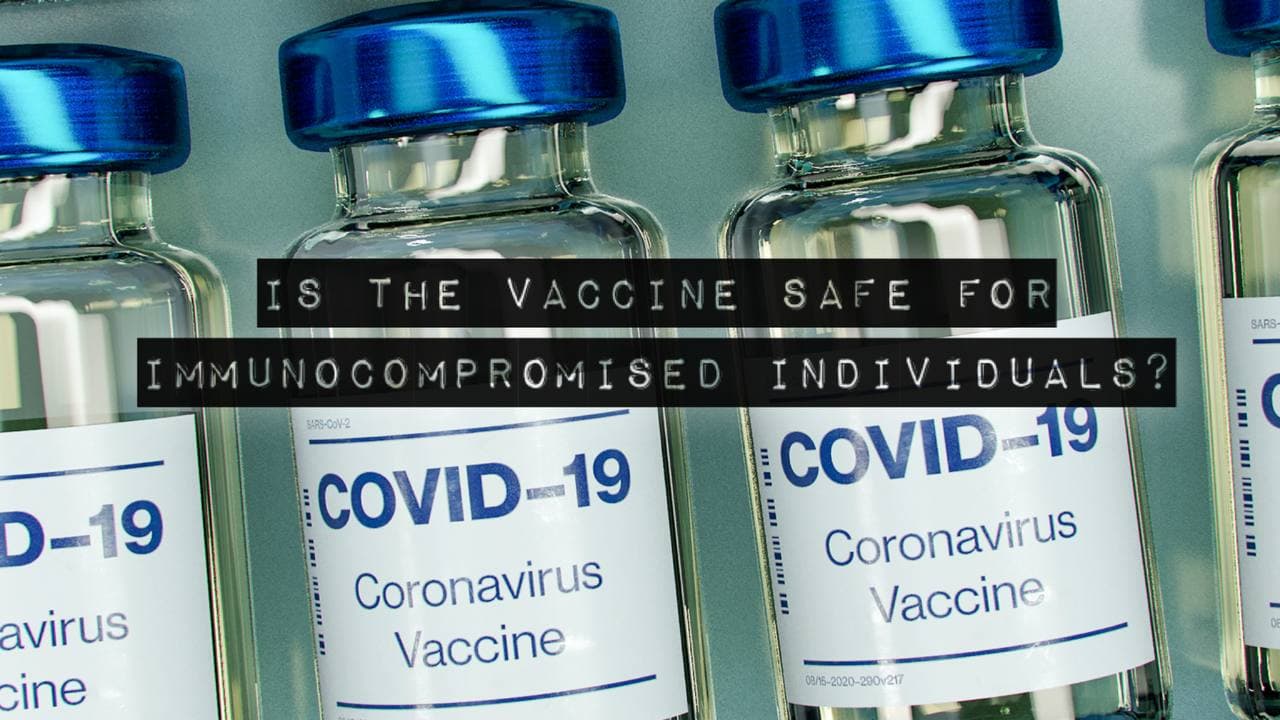With over 1 million orders

IS THE COVID-19 VACCINE SAFE FOR IMMUNOCOMPROMISED PATIENTS?
If you suffer from an autoimmune version of arthritis such rheumatoid arthritis or psoriatic arthritis, then you’re probably wondering how the newly released COVID-19 vaccines affect those who take immunosuppressants.
The biggest question is, can you get the vaccine even if you suffer from autoimmune conditions or are taking medication designed to suppress your immune system?
While there is currently no advisory that says you can’t vaccinate people with autoimmune diseases, experts assert that there is no reason to believe that COVID-19 vaccines available now are unsafe.
As reported by Arthritis.org:
“Both the Pfizer/BioNTech and Moderna, Inc. vaccines are made with mRNA technology, which contain genetic instructions for one part of the coronavirus instead of the entire virus itself. Experts, including Wilbur Chen, MD, vaccine researcher, professor of medicine at the University of Maryland School of Medicine, and Ted Mikuls, MD, MSPH, Umbach Professor of Rheumatology at the University of Nebraska, expect that vaccines made with this technology to be safe for immunocompromised patients and those on immunosuppressant drugs.”
Of course, additional research and data is still needed to definitively understand how the COVID-19 vaccines will interact with immunosuppressant medications, or even unchecked disease activity. However, the medical community is optimistic that by the time the vaccine is ready to be rolled out in the public on a larger scale, there will be more reliable information regarding its safety and efficacy for immune-compromised patients as well those suffering from rheumatic conditions.
Additionally, studies conducted by CreakyJoints and the Global Healthy Living Foundation reports that rheumatologists they have spoken to so far have recommended getting the vaccine as soon as it is available to the public.
“The general consensus is that there is no reason to expect that an mRNA COVID-19 vaccine —such as from Pfizer or Moderna — would be less safe in people who are immunocompromised. There may be a chance that the vaccine is less effective in those taking immunosuppressant medication — which dampens the immune system response — but there is not yet data that shows this. However, even a theoretically less effective vaccine is better than no vaccine.
Bottom line?
If you have a rheumatoid condition or suffer from an autoimmune inflammatory disease; if you’re immunocompromised or taking immunosuppressant medication, start a dialogue with your health care provider to know if getting the vaccine is right for you.
It’s easy to get overwhelmed by the misleading and inaccurate information circulating online about COVID-19 so it’s important that you speak to a trusted physician who can give you a better idea of what your options are.
As always, we will be on the lookout for the latest updates regarding the COVID-19 vaccine so we can share and report trusted news as more information comes to light.
And if you’re looking to find easy and non-invasive ways to manage common arthritis symptoms, do check out our best-selling cotton compression gloves, ideal for osteoarthritis, rheumatoid arthritis, Raynaud’s phenomenon, carpal tunnel syndrome, Dupuytren’s contracture, psoriatic arthritis and even soft tissue and sport-related injuries.
